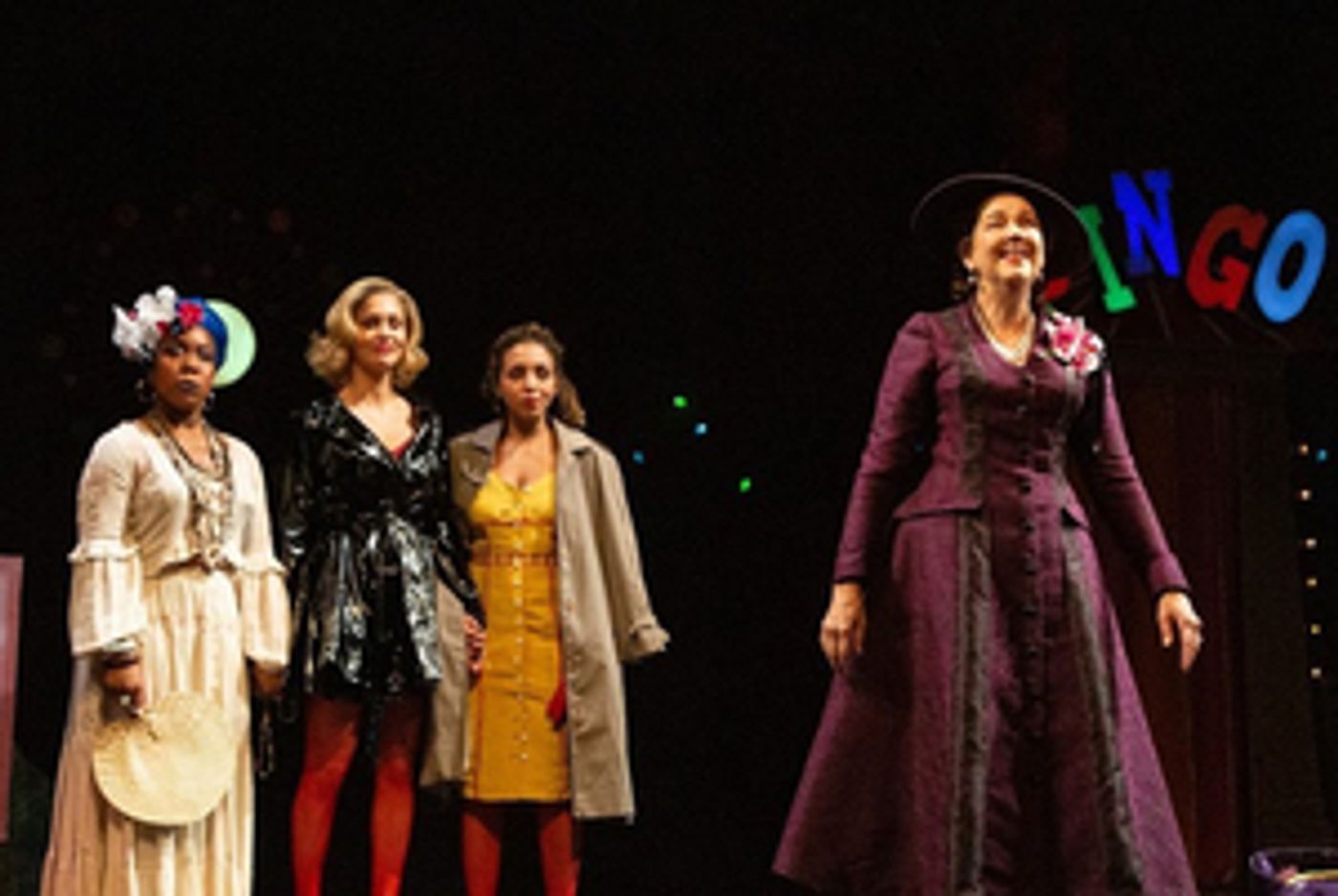Review Roundup: THE SKIN OF OUR TEETH at Berkshire Theatre Group

Three-time Pulitzer Prize-Winner Thornton Wilder's The Skin of Our Teeth begins performances on Thursday, July 11 at The Fitzpatrick Main Stage (83 East Main Street) in Stockbridge, MA, and runs through August 3.
Directed by Pulitzer Prize and Tony Award-Winner David Auburn (Proof; BTG: The Petrified Forest, Cat on a Hot Tin Roof), this production features Tony Award-Winner Harriet Harris (Broadway: Thoroughly Modern Millie; TV/Film: Frasier, Phantom Thread; BTG: Sister Mary Ignatius Explains It All For You, Arsenic and Old Lace) as Mrs. Antrobus and Danny Johnson (Broadway: All The Way, The Song of Jacob Zulu; TV: Luke Cage, Daredevil) as Mr. Antrobus, along with Lauren Baez (Off Broadway: The Great Cat Massacre; BTG: The Petrified Forest) as Muse, Conveneer, Chair Pusher, Bailey; Lynnette Freeman (Off Broadway: Travisville, On The Outs, Kentucky; BTG: Lost Lake) as Homer, Fortune Teller, Ivy; Marcus Gladney (Broadway: Choir Boy) as Henry; Ralph Petillo (BTG: A Christmas Carol, Tarzan, The Music Man) as Moses, Bingo Caller, Mr. Tremayne; Claire Saunders (Off Broadway: Marry Harry, Errol and Fidel, Taming of the Shrew) as Gladys; Marjie Shrimpton (Regional: White Christmas) as Muse, Telegraph Boy, Hester; Matt Sullivan (Off Broadway: The Roads to Home; BTG: Sister Mary Ignatius Explains It All For You, Arsenic and Old Lace) as Stage Manager, Broadcast Official; and Ariana Venturi (TV: The Marvelous Mrs. Maisel; BTG: Sister Mary Ignatius Explains It All For You, Design For Living, The Cat and The Canary) as Sabina.
Let's see what the critics have to say!
DL Simmons, Curtain Up: Director David Auburn's staging is willing to deviate from the text with sporadic references to Berkshire landmarks and a cross-promotional plug for BTG's upcoming production of Shrek: The Musical. But that's about it as far as taking chances. The bulk of his (intentionally) artificial style feels too slavish to the play's original concept. If in 1942 Wilder was asking "How will we survive another world war?", today shouldn't we be asking "How will mankind survive politics, climate change and the internet?" Instead, Auburn concentrates on frenzied blocking, directing the actors to scurry around the stage, arms flailing and lips flapping like a jarring screwball comedy that would've given Cary Grant a headache. Not that Auburn doesn't earn some well-deserved laughs. Ariana Venturi's ditsy Sabina shows expert comic timing for the most part, and that's rarely achievable without a good director. It's just that he plunders all these little comic grace notes with scenes of earnest chest-thumping that feel overwrought in a play as performed by actors playing actors portraying one-dimensional characters. Again, that's on Wilder, but nimbler direction might have avoided these potholes rather than steer into them.
J. Peter Bergman, Berkshire Bright Focus: Bill Clarke's scenic design is theatrically sketchy and works very well, especially as lit by designer Daniel J. Kotlowitz. The 1942 costumes created by Hunter Kaczorowski were beautifully right for the play. Scott Killian's sound work was, as usual, superb. Once again J. Jared Janas has given us the right looks with his wigs and makeup. David Auburn has done a fine job directing this wonderfully odd play, a long-time favorite of mine. He and his cast have brought forward all of the humor in Wilder's script and all of the character that makes this a very special look at human history and American's part in creating the world we all now live in. I haven't always liked his work as a director, but this is a job extremely well done and I happily applaud this stage triumph.
Macey Levin, Berkshire on Stage: Johnson and Harris have control of their respective roles as the Antrobuses. They skillfully mine the humor and sentimental moments while giving depth to the more powerful scenes as does Gladney Jr.'s Henry, especially in the last act when he challenges his father's optimistic desire to rebuild civilization. Saunders' transition from a somewhat ditzy teen-ager to a world-weary mother is touching. Sabina is the most animated character and Venturi throws out her laugh lines with aplomb. There are times, however, when her projection could be stronger.
Marc Savitt, BroadwayWorld: Many existential concepts are explored, such as pecking order / food chain, stereotypes, traditional roles, social norms and taboos, influence, control, coping, judging, privilege, and of course - evolving. The complexity of the play is increased by two elements. A play-within- a play scenario and frequent breaking of the fourth wall wherein actors break character and address the audience directly. Life imitating art imitating life can get a bit confusing and audience members may find themselves overwhelmed and confused, particularly during act one. Hang in there - good things take time. The messages become much clearer and well connected in acts two and three.
Reader Reviews
Videos

